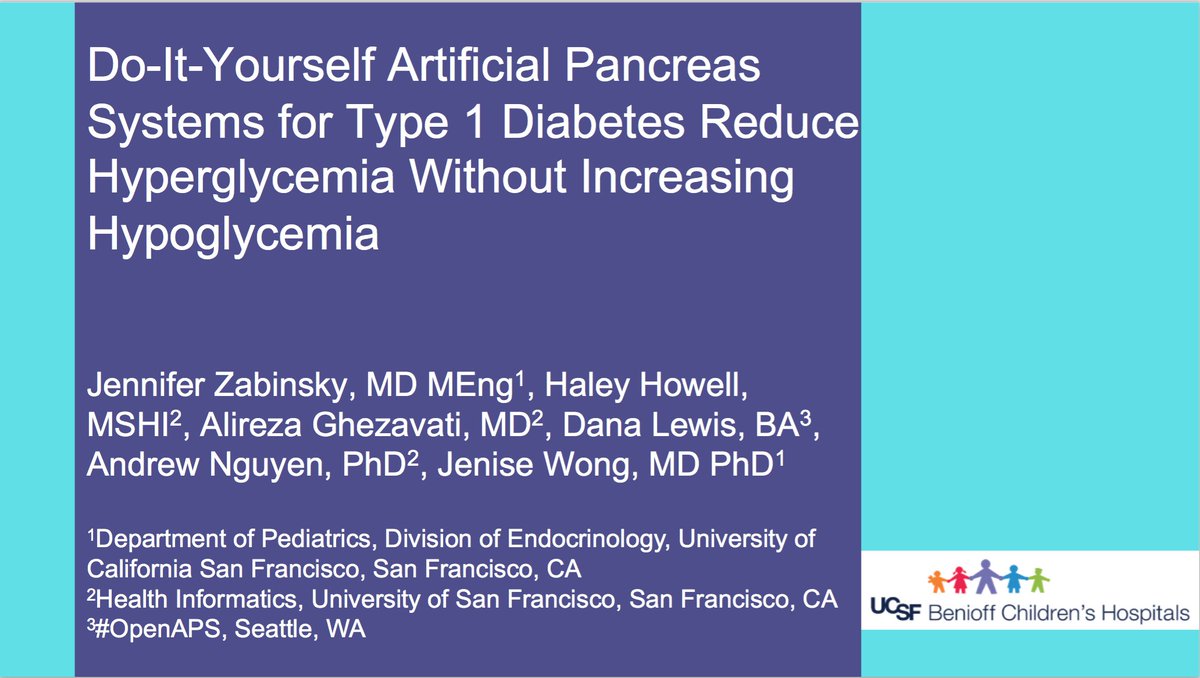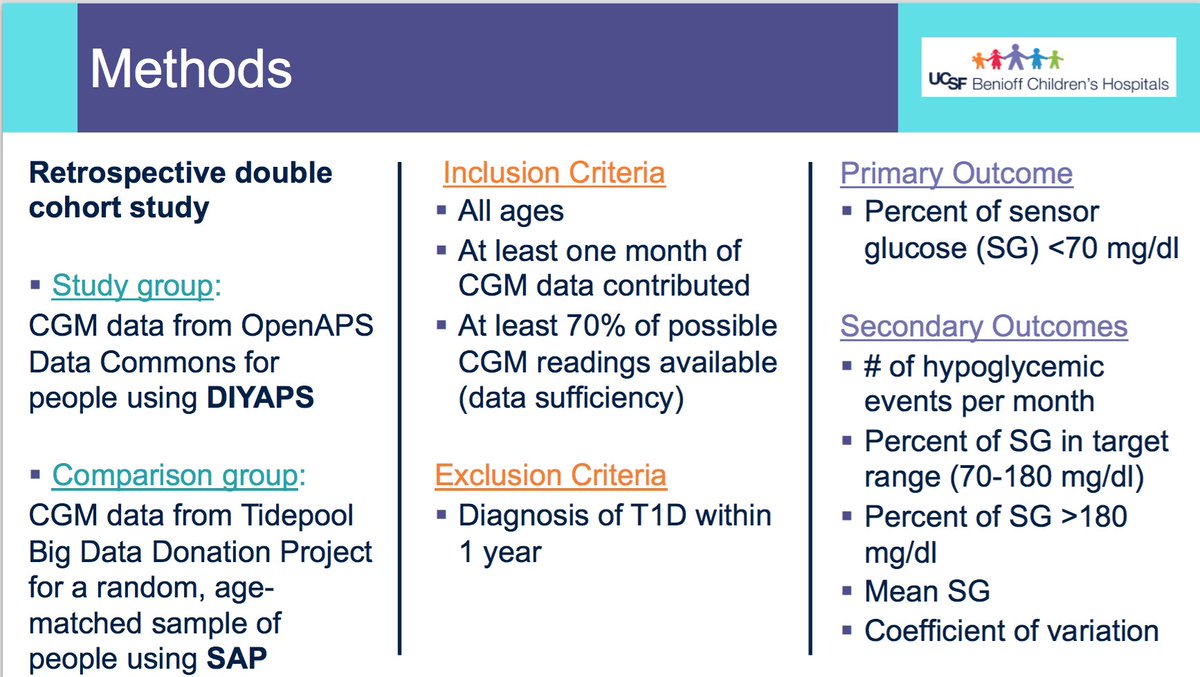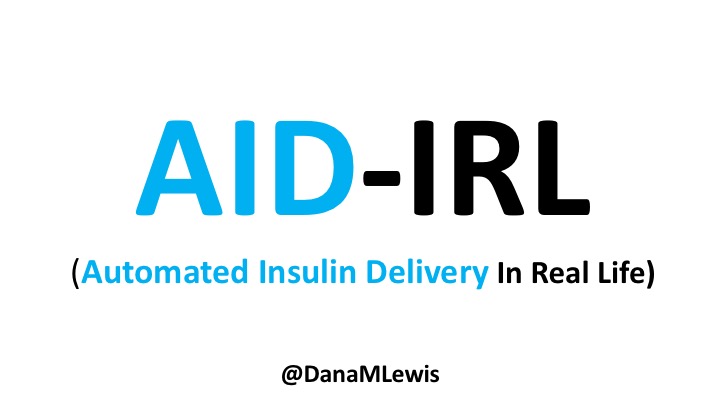
📣 Presentation of the primary outcome results from the CREATE Trial, which assessed open source automated insulin delivery (AID) compared to sensor-augmented pump therapy (SAPT) in adults & kids with T1D, at #ADA2022!
@DrMartindeBock1 presenting on behalf of CREATE team.
1/
@DrMartindeBock1 presenting on behalf of CREATE team.
1/
Shout out to the amazing CREATE study team.
(PS - there’s another publication from our team about HCPs learning experience on open source AID for this study, too! doi.org/10.1111/dme.14…)
2/ #ADA2022
(PS - there’s another publication from our team about HCPs learning experience on open source AID for this study, too! doi.org/10.1111/dme.14…)
2/ #ADA2022

The CREATE trial aimed to study the efficacy and safety of an open source automated insulin delivery system, with a large scale, long term randomized controlled trial.
3/ #ADA2022
3/ #ADA2022
If you're interested, the full study protocol paper for the CREATE trial is open access and available at rdcu.be/b4wUR
4/ #ADA2022
4/ #ADA2022
Quick overview - there was a 4-week run-in period to adjust to CGM (which most participants didn't have experience with), before being randomized to AID (intervention) or SAPT (control).
Note: continuation phase data to be presented at EASD!
5/ #ADA2022
Note: continuation phase data to be presented at EASD!
5/ #ADA2022
Primary outcome was % time in sensor glucose range during the final 2 weeks of the 6 month trial.
Secondary outcome included A1c, safety data, psychosocial impact, etc.
Study enrolled both adults & kids with T1D.
6/ #ADA2022
Secondary outcome included A1c, safety data, psychosocial impact, etc.
Study enrolled both adults & kids with T1D.
6/ #ADA2022
The AID system studied included a version of open source AID, AndroidAPS (2.8), which uses #OpenAPS algorithm (v0.7.0).
Learning objectives slightly modified compared to real world. All other settings/features including SMB, autosens, etc available to participants.
7/ #ADA2022
Learning objectives slightly modified compared to real world. All other settings/features including SMB, autosens, etc available to participants.
7/ #ADA2022
Results:
14% improvement TIR (p<0.001) as mean adjusted treatment affect.
AID improved TIR: 61.2 ± 12.3% to 71.2 ± 12.1%
(Control arm TIR: 57.7 ± 14.3% to 54.5 ± 16.0%)
No treatment effect by age interaction was detected (p=0.56)
8/ #ADA2022
14% improvement TIR (p<0.001) as mean adjusted treatment affect.
AID improved TIR: 61.2 ± 12.3% to 71.2 ± 12.1%
(Control arm TIR: 57.7 ± 14.3% to 54.5 ± 16.0%)
No treatment effect by age interaction was detected (p=0.56)
8/ #ADA2022
AID improved TIR for both kids and adults overall, but was most effective at night for both groups.
This graph shows the DIFFERENCE in percentage of TIR, so you can see the bigger difference at night vs day and overall.
9/ #ADA2022
This graph shows the DIFFERENCE in percentage of TIR, so you can see the bigger difference at night vs day and overall.
9/ #ADA2022
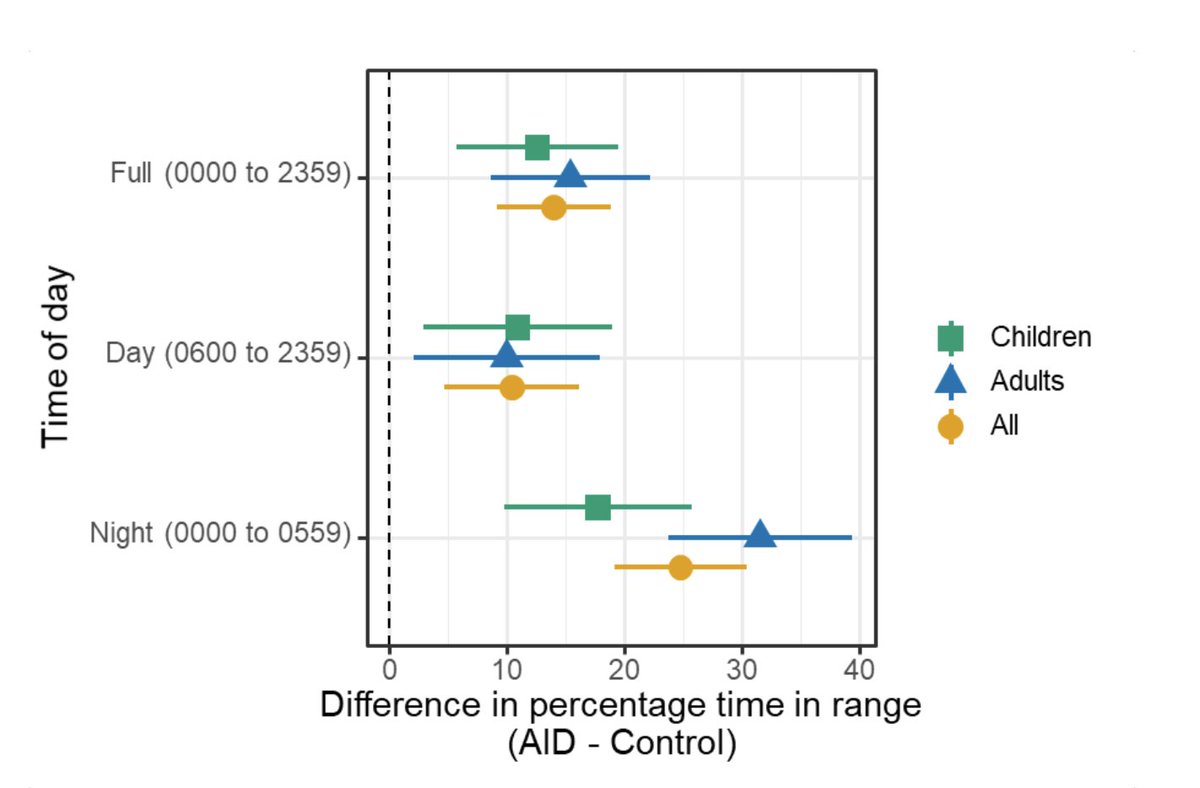
Of note, the TIR improvements occurred at the start of the intervention and were sustained throughout the study period (6 months).
10/ #ADA2022
10/ #ADA2022

Overall, we mentioned there was 14% TIR improvement treatment affect in AID from 70-180 mg/dL.
But take a look at the 70-140 mg/dL range - there is also 16% overall treatment affect, with no increase in hypoglycemia.
Mean sensor glucose reduced 22 mg/dL
11/ #ADA2022
But take a look at the 70-140 mg/dL range - there is also 16% overall treatment affect, with no increase in hypoglycemia.
Mean sensor glucose reduced 22 mg/dL
11/ #ADA2022
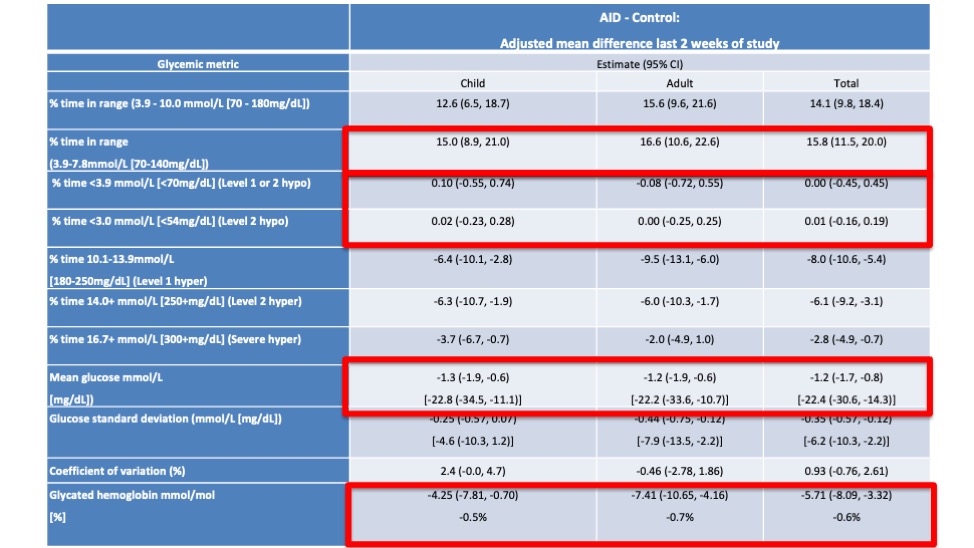
Safety wise? No severe hypoglycemia or DKA in the trial.
Any adverse device events (ADE) were rare; similar between control and intervention groups; and were typically pump-associated events like site occlusions. No algorithm-associated ADE were observed.
12/ #ADA2022
Any adverse device events (ADE) were rare; similar between control and intervention groups; and were typically pump-associated events like site occlusions. No algorithm-associated ADE were observed.
12/ #ADA2022
We used a proxy method to assess time spent in automation, and in the AID arm automation was active 94% of the time during the study duration.
13/ #ADA2022
13/ #ADA2022
Conclusion from the CREATE trial:
Open-source AID, using the OpenAPS algorithm within a modified version of AndroidAPS, is efficacious and safe in children and adults with type 1 diabetes compared to sensor augmented pump therapy.
14/ #ADA2022
Open-source AID, using the OpenAPS algorithm within a modified version of AndroidAPS, is efficacious and safe in children and adults with type 1 diabetes compared to sensor augmented pump therapy.
14/ #ADA2022
Here is a visual summary of the CREATE trial primary outcome results presented at #ADA2022:
You can also read a blog post summary I wrote of the CREATE trial and results here: bit.ly/3zkAFsL
15/15
You can also read a blog post summary I wrote of the CREATE trial and results here: bit.ly/3zkAFsL
15/15
• • •
Missing some Tweet in this thread? You can try to
force a refresh




